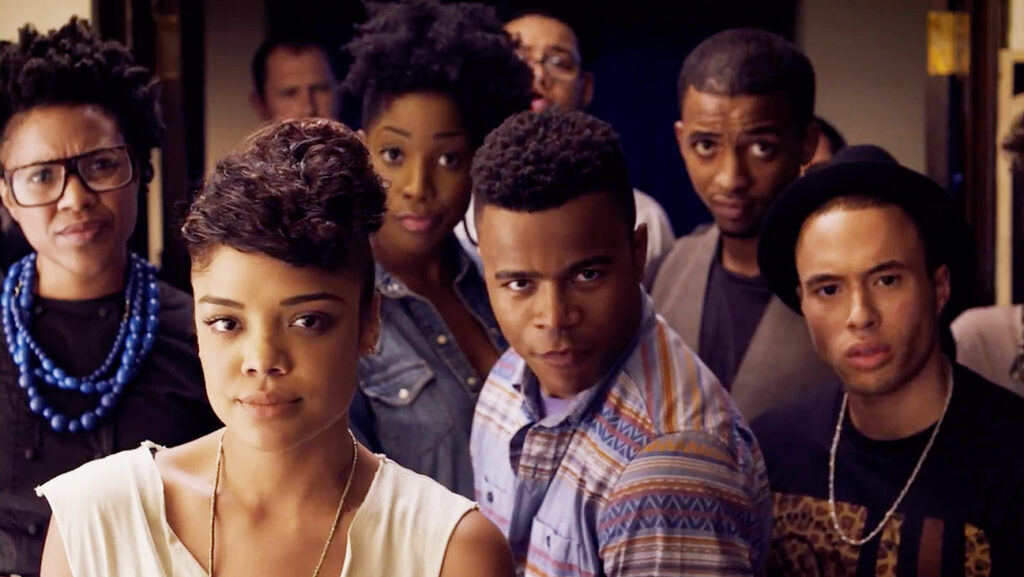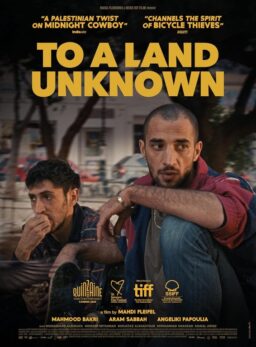The following
review was written by Kinnedy Broughton, a Chicago high school student, as part
of Columbia College Chicago’s Columbia Links journalism program for high school
students. RogerEbert.com has partnered with the Chicago Urban League and
Columbia Links to mentor these students and to give them a platform for their
writing. Read more about the program here.
2.5 stars
What is racism? Who’s capable of it? Can it occur within
individuals of the same race? These controversial questions are represented in “Dear
White People,” written and directed by Justin Simien, and the 2014 Independent
Spirit Award winner for Best First Screenplay. It’s a promising satirical film that examines
the segregated stereotypes of campus culture.
Simien’s film takes place at Winchester University, a
predominantly white, prestigious university where we’re introduced to six
significant characters: Sam White (Tessa Thompson), the biracial activist who
overcompensates her blackness; Lionel Higgins (Tyler James Williams), the black
homosexual who lives in an all-white residence building, and feels little sense
of belonging; Colandrea “CoCo” Conners (Teyonah Parris), the white-washed blogger
who acknowledges racism yet chooses to ignore it in fear of non-acceptance from
the white majority; The Dean (Dennis Haysbert), who has worked hard his whole
life solely to over-emphasize his superiority and intelligence towards white
corporate men, specifically the president of Winchester; The Dean’s son Troy (Brandon
Bell), who spends his college career doing things to make his father happy and
impress the white majority; and Kurt Fletcher (Kyle Gallner), the privileged,
ignorant son of the President of Winchester.
Unfortunately, these characters are all extremely
underdeveloped with no true back story and have obvious predictability. Characters
such as Sam White, presented as the fiery activist who sparks elongated intellectual
debates, suddenly has her fire put out around the end of the film as if her
personality completely changed within a day. Lionel Higgins and Colandrea
Conners are both vital characters to the film, yet are completely under-developed.
The film gives us the gist of the stereotypes that are supposed to have purpose
in the film, yet we really didn’t know much about them. We don’t know what
makes Colandrea the way she is, or why she’s embarrassed of her roots. Neither do
we know why Lionel loathes labels and the reasoning behind why he can’t fit in
with his race or his sexuality.
Simien employs a mix of modern rap and alternative music,
which helps manifest the college-themed setting, although it doesn’t mix well,
and seems as if the music was simply thrown in the film. The camera angles are
amateur. It is distractingly clear that Simien tried to find points whereas to
create intricate camera angles, such as the time Colandrea has a conversation
with the reality television scout. It is more confusing than unique.
However, as flawed as it may be, the messages connect fairly
well. “Tell me man, what’s harder, being black enough for the black kids or
black enough for the white ones?” This quote parallels Lionel’s inability to
connect with his own race with Sam’s struggle with her identity as a biracial
girl. You also see some slight colorism occur with Colandrea’s insecurity towards her
dark skin as she points out while filming her video blog. Colandrea, The Dean
and Troy all struggle with receiving white acceptance, yet are in denial about it.
It’s clear that they believe the only way to make something of themselves and
to seem established is by melding into being something they’re not, loving
people they don’t.
“Dear White People” had potential and Simien undeniably conceived
an amusing-yet-thought-provoking message for his audience, even if that message
is predictable and only hits surface level. If the characters were more
developed beyond their stereotypical behaviors, the film could have been an
even bigger hit.











